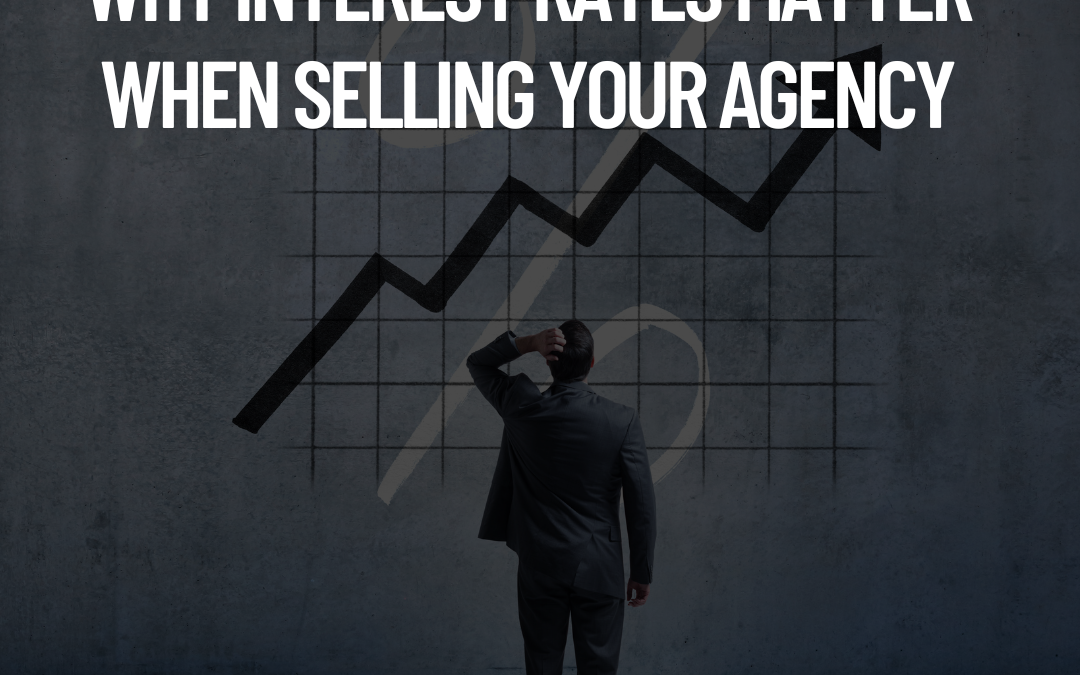Question: Interest rates have increased, so what does that mean for insurance agencies looking to sell their business?
Many buyers in the market to purchase insurance agencies borrow money to pay for the agencies they buy. A loan will cause the cost of the purchase to go up. I am sure you can all make this connection and understand this basic economic concept. I don’t think that anyone reading this would be confused at this point.
The question is, how does the financing affect the agencies that want or need to sell? We have come up with a few things to ponder.
Platform Agency vs. Not a Platform Agency
First, the cost of purchasing agencies has indeed gone up because of the increase in interest rates. The truth is that buyers still need to buy agencies to grow. The question they must answer is how to do it and ensure they keep their overall cost down. Buyers may become more selective and focus only on agencies with higher growth potential and profit. They also could use the current interest rates as a reason to pay less for some agencies and more for other agencies. You are all still following this, right?
Second, we think that buyers will need to maintain what they are willing to pay for the agencies that are larger, growing, and might be considered “platform agencies.” The rationale is that these “platform agencies” are sought after by many buyers, so there will be intense competition.
These “platform agency” sellers are also more sophisticated and realize that they need to engage a trusted advisor to help them through this process to ensure that they achieve their ultimate financial goals now, as well as their future goals. The buyers follow the same process for the most part, no matter what size of the agency, and if there are limited resources, more focus is on conservation. So, if the buyers must pay more for some agencies, how do they ensure they pay less for others while convincing them to close the deal?
The “Go-Around”
One of the strategies buyers use is to call agencies directly and try to convince them that there is no need to hire an advisor. This strategy works because the buyer can pay much less when an agency does not employ an advisor. They also know that the other transaction areas, like overhead charges and working capital requirements, will not be the focus. The goal for the buyer is to eliminate the competition and get the agency to fall in love with them.
The process is complex, and there are many ways in which buyers can reduce the amount that they pay a seller. For this reason, the selling agent must have a good advisor to guide them during the sale. The right advisor has years of experience ensuring that their clients get every cent of the sweat equity they invested in building their business. They set realistic expectations and do not make promises they cannot keep. The right advisor will also know the buyers and can focus on the right price for the agency and who is the right fit for the purchase.
As you can see, hiring a sales advisor to help navigate the sale of your agency is even more critical now that the interest rates are increasing. Agency owners only get to sell their agency once, but most buyers buy them for a living. A selling agency needs an advocate to get the best value for the business they spent their life building.

